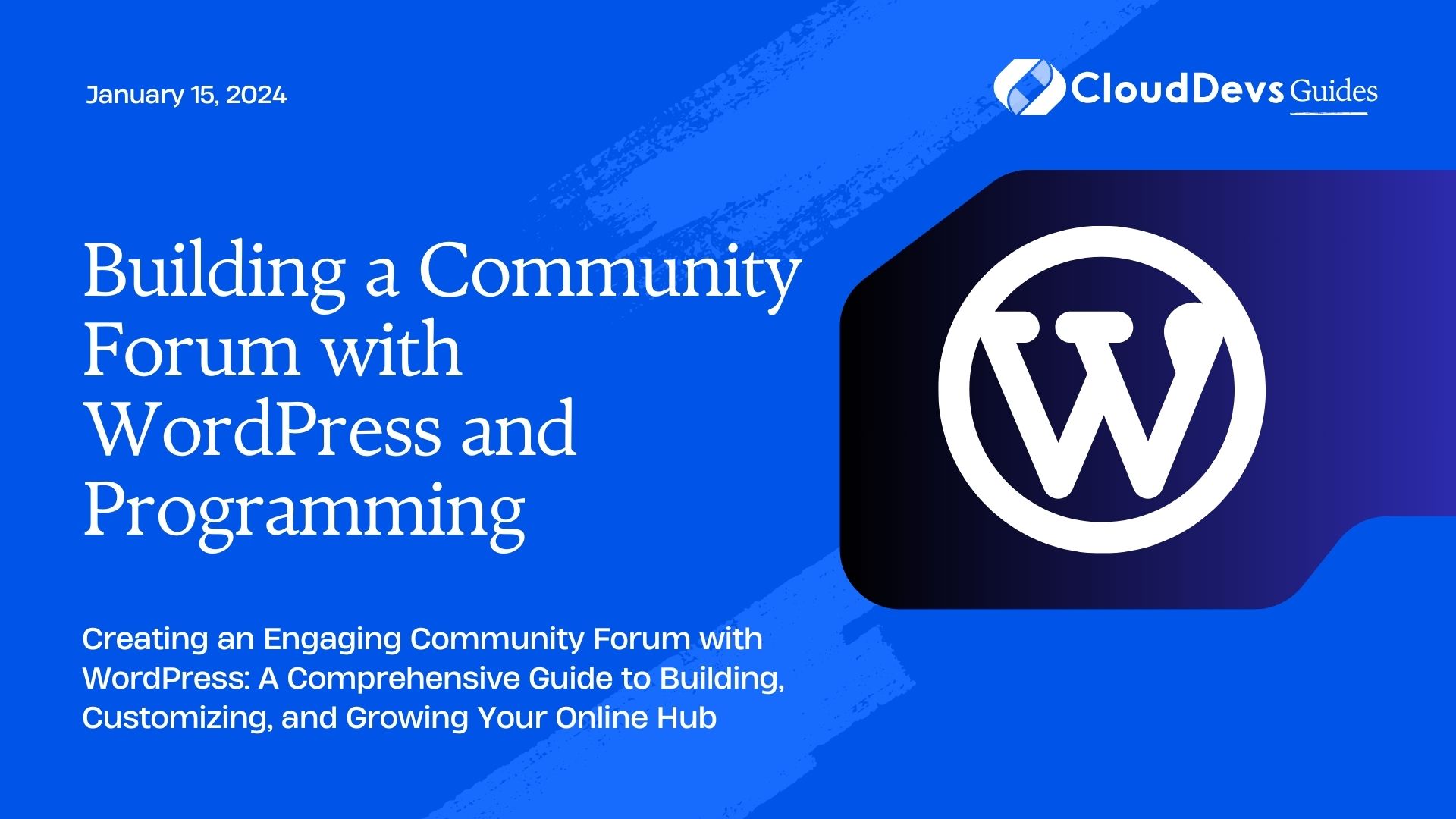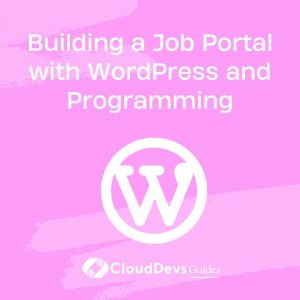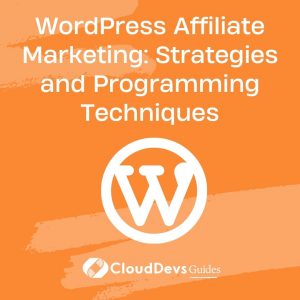Building a Community Forum with WordPress and Programming
Building a thriving online community forum can be a rewarding endeavor. It fosters interaction, knowledge sharing, and user engagement, making it a valuable addition to websites or projects of all kinds. In this comprehensive guide, we’ll explore how to create a feature-rich community forum using the power of WordPress and programming. Whether you’re starting from scratch or looking to enhance an existing site, we’ll cover everything you need to know to set up a successful online hub.
Table of Contents
1. Why Create a Community Forum?
1.1. Enhancing User Engagement
A community forum offers a platform for users to interact, discuss, and share their thoughts, experiences, and expertise. This not only keeps visitors engaged but also encourages them to return to your website regularly.
1.2. Building a Knowledge Hub
For niche-specific websites, a forum can serve as a valuable knowledge hub. Users can ask questions, seek advice, and share insights, creating a valuable resource over time.
1.3. Boosting SEO and User-Generated Content
User-generated content in the form of forum discussions can improve your site’s SEO. Fresh, relevant content keeps search engines interested and can attract organic traffic.
1.4. Establishing Authority
A well-moderated forum can establish your authority in your niche. When users see your site as a trusted source of information and discussion, it can lead to increased credibility.
Now that we’ve highlighted the advantages of having a community forum let’s dive into the steps required to build one.
Step 1: Choose the Right Platform
WordPress: A Versatile Choice
WordPress is a versatile content management system (CMS) that’s perfect for building community forums. Its user-friendly interface, extensive plugin library, and customizability make it an ideal choice.
bbPress: A Dedicated Forum Plugin
To transform your WordPress site into a community forum, you can use a dedicated plugin like bbPress. It seamlessly integrates with WordPress and provides all the necessary features for forum creation and management.
Step 2: Install WordPress and bbPress
Setting Up WordPress
- Sign up for a hosting provider and domain name.
- Install WordPress using the one-click installer provided by your hosting service.
- Customize your website’s appearance by selecting a theme that aligns with your forum’s purpose.
Installing bbPress
- Log in to your WordPress dashboard.
- Go to Plugins > Add New.
- Search for “bbPress” and click “Install Now.”
- Activate the plugin.
Step 3: Configure bbPress Settings
Forum Structure
Define forum categories and subcategories to organize discussions effectively.
Decide on the structure that best fits your niche and user needs.
User Roles
Set user roles such as moderators, participants, and administrators to manage forum interactions and content.
Permissions
Configure who can post, edit, and delete content within your forum.
Customize permissions based on user roles.
Step 4: Design Your Forum
Choose a Theme
Select a WordPress theme that complements your forum’s purpose. Ensure it’s responsive and user-friendly for mobile and desktop users.
Customize the Appearance
Personalize the forum’s colors, fonts, and layout to match your website’s branding.
Implement a clean and intuitive design for easy navigation.
Step 5: Implement Essential Features
User Registration
Enable user registration to allow individuals to create accounts and participate in discussions.
Use CAPTCHA or other security measures to prevent spam registrations.
Discussion Threads
Allow users to create discussion threads and respond to existing ones.
Implement a user-friendly editor for formatting text, adding images, and embedding media.
Notifications
Set up email notifications to alert users of new posts, replies, and mentions.
Keep users engaged by ensuring they are informed of relevant discussions.
Search Functionality
Integrate a robust search feature to help users find specific topics or posts.
Implement filters and sorting options for enhanced user experience.
Step 6: Implement Advanced Features with Programming
Custom User Profiles
Create custom user profiles with additional information like user badges, statistics, and avatars.
Use PHP and WordPress hooks to extend user profiles beyond the default features.
Gamification
Introduce gamification elements like badges, points, and rankings to encourage user participation.
Program these features using PHP and JavaScript for a dynamic experience.
Moderation Tools
Develop custom moderation tools to efficiently manage content and user interactions.
Use programming languages like PHP to create automated moderation processes.
Step 7: Ensure Security and Moderation
User Guidelines
Establish clear community guidelines to maintain a respectful and productive environment.
Educate users about the rules and expectations.
Moderation Team
Assemble a team of moderators to enforce guidelines and maintain a positive atmosphere.
Provide them with training on moderating discussions effectively.
Security Measures
Regularly update WordPress, plugins, and themes to patch vulnerabilities.
Implement security plugins and measures to protect against common threats like spam and hacking attempts.
Step 8: Promote Your Forum
Content Promotion
Share engaging forum threads and discussions on social media to attract new users.
Encourage members to share their contributions on their own platforms.
SEO Optimization
Optimize your forum’s SEO by using relevant keywords in thread titles and content.
Encourage members to create content-rich discussions.
Community Building
Engage with your community regularly by responding to posts and questions.
Host events, contests, or webinars to foster a sense of belonging.
Step 9: Analyze and Improve
Analytics
Monitor forum engagement, traffic, and user behavior using tools like Google Analytics.
Use data-driven insights to make improvements and adjustments.
User Feedback
Collect feedback from your community through surveys or discussion threads.
Act on feedback to enhance the forum’s user experience continually.
Step 10: Scale and Evolve
As your community forum grows, consider these additional steps:
Monetization
Explore monetization options such as premium memberships, sponsored content, or advertising.
Ensure that monetization strategies align with your community’s interests.
Integration
Integrate additional tools and features as needed, such as chat systems, user-generated content showcases, or e-commerce functionality.
Use programming to connect these elements seamlessly.
Community Events
Host online and offline events to further engage your community.
These could include webinars, conferences, meetups, or exclusive member-only events.
Conclusion
Building a community forum with WordPress and programming is a rewarding endeavor that can bring together like-minded individuals and provide a valuable resource. By carefully following these steps and continuously improving your forum, you can create a thriving online community that benefits both you and your users. Remember, success in community building takes time, dedication, and a commitment to fostering a positive and inclusive environment. So, get started today, and watch your forum grow into a vibrant online hub.
Table of Contents








